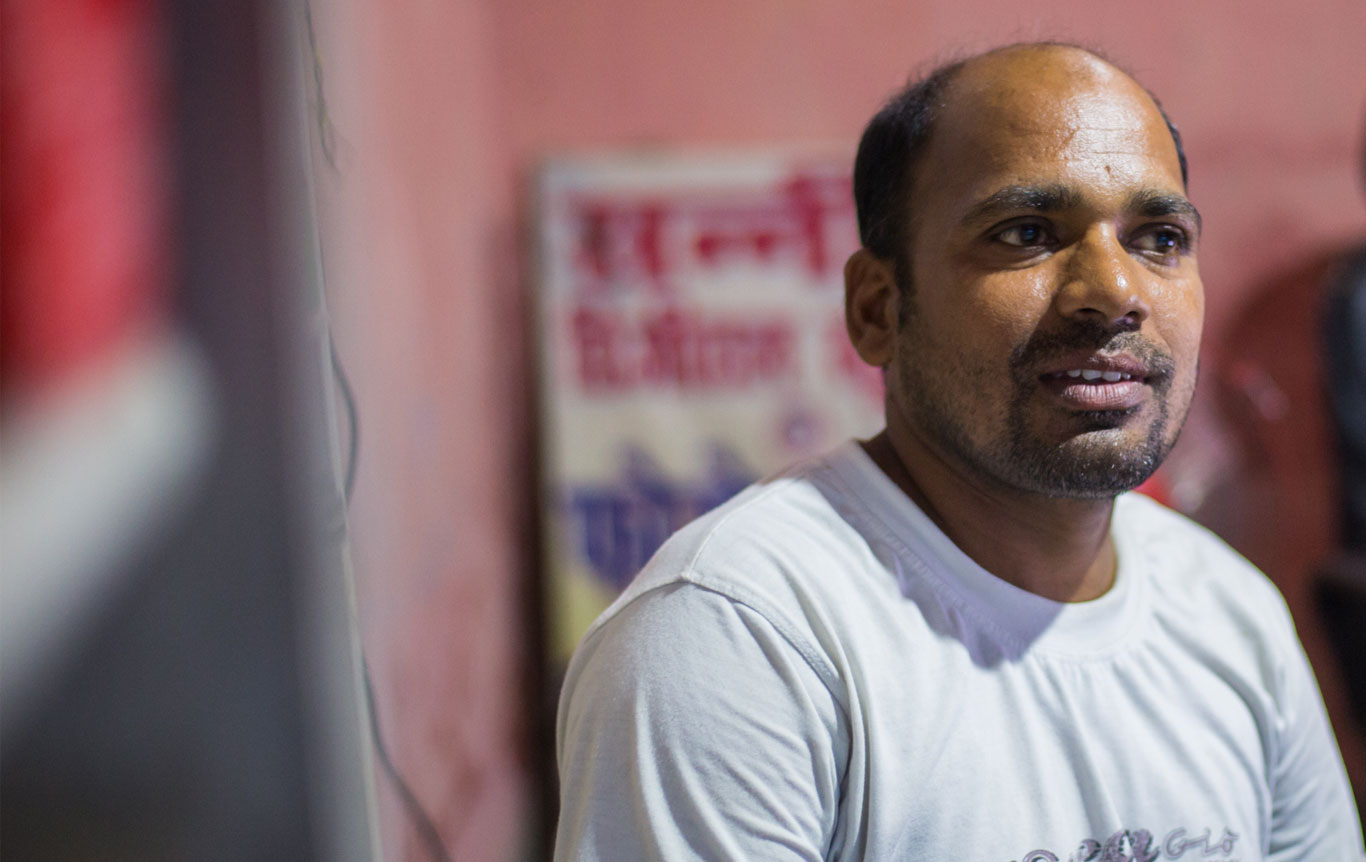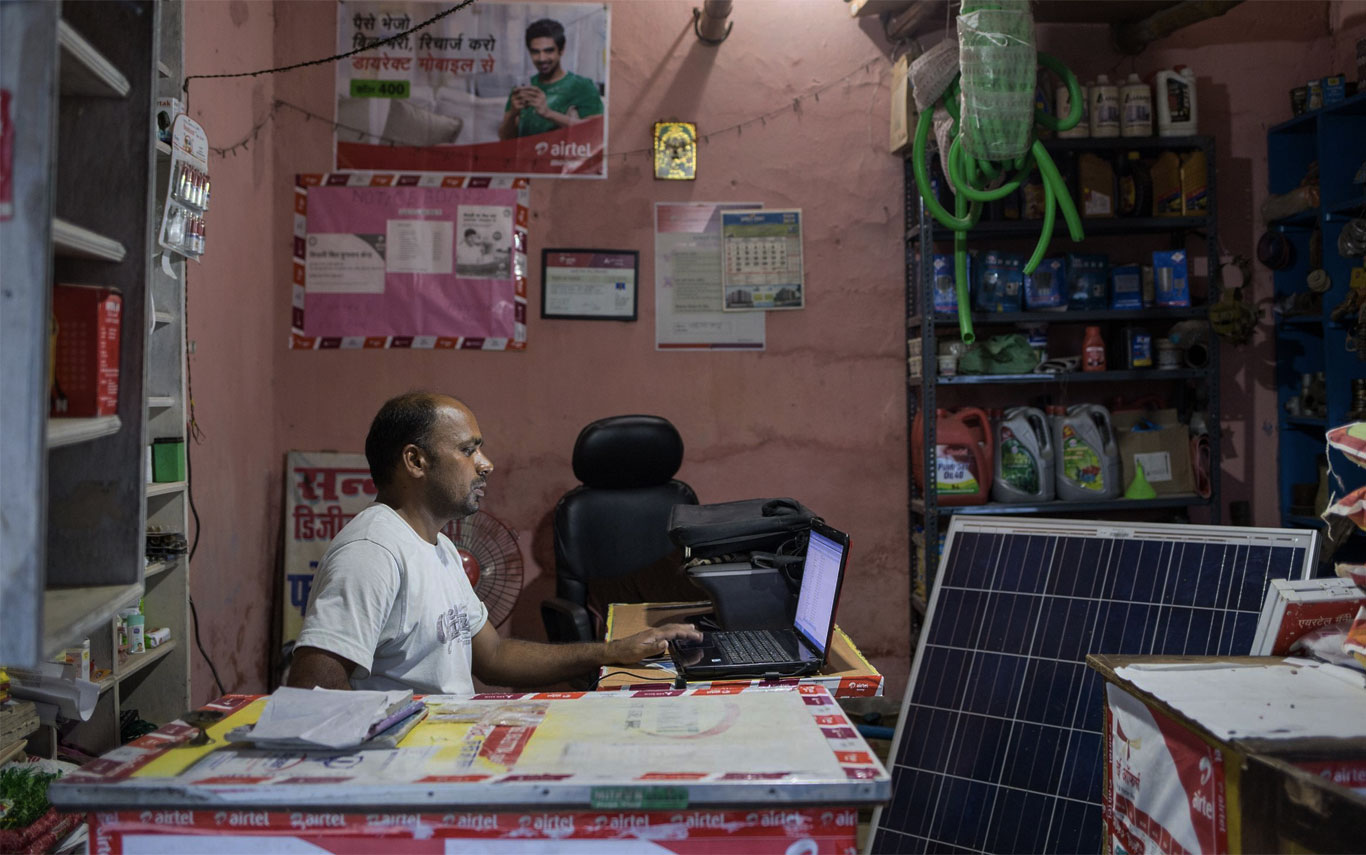
The
Power of
One
Bishunpur Tolla, Dharnai, Bihar — During the day, he is busy managing his business. At night he is busy ensuring that the people of the village are making the right decisions with regard to their future.
A father, a son, a husband, a neighbour, a businessman and now the Village Electricity Committee (VEC) chairman of Bishunpur Tolla, Kamal Kishore Prasad, is a man of courage, conviction and vision.
It was his foresight two years ago that enabled him to realize the potential of a decentralized renewable energy electrification project that would change the fate of his village for better.
When Greenpeace India first landed in his village, Kamal was mildly surprised. “They said they would bring us 24x7 electricity,” he recalls. “It was a surprise because our experience was anything but the opposite.”
It has been a tradition in Bihar to wait for the government to provide for the people or fix things when broken. Like access to power, for example. While the state’s electricity demand has been growing rapidly in recent times, India’s 2011 Census notes that 83% of households in Bihar still have no access to electricity. Continued dependence on the centralized grid and low cost of recovery encountered by state utilities has made rural electrification in Bihar far more difficult and uneconomical, according to a Greenpeace report.
A pro-solutions organization, Greenpeace India, has been investigating alternatives to enable access to power in Bihar since 2010, and their research revealed that a demand-driven electrification system which can be tailored according to local needs and scaled as per local requirements, can bridge the gap.
As Kamal learned more about the solution, the more incredible it appeared in the beginning. The reality he knew was that Dharnai has not had electricity in the last three decades. The central grid system that provided electricity to the village once upon a time, had been plagued with problems. Vandalism, theft and equipment breakdown were common occurrences, and villagers had to rush to the government officials for remedy.
After a point in time, things did not get fixed by the government and Dharnai sank into darkness once the sun went below the horizon.

“So when people from Greenpeace came and told us in 2012, that they would provide electricity, you can imagine the surprise,” Kamal said with a smile. “First, according to our experience, people providing electricity, that is government officials, never came to us, we had to run after them, and second, none of us were ready to believe that we could have power 24x7.”
In the context of Bihar where power cuts are a reality even in the state’s capital, Patna, such promises by Greenpeace appeared a bit far-fetched, Kamal said.
But being more curious than skeptic, Kamal probed for more information, and slowly, after learning more and witnessing the persistence of the team from Greenpeace, he decided that change was possible.
“He has been supporting us from day one,” recalls Naveen Kumar, a campaigner from Greenpeace. “His enthusiasm and support has been key to our success.”
After two years of ground work and three months of installation, the solar-powered microgrid system started generating electricity in the village, on a trial basis, since March 2014. Now, as the VEC chairman of his tolla, Kamal is involved in managing the operation and distribution of the system. “It is also a 24x7 commitment from our side to provide support as needed, safeguard the assets and run it smoothly,” he said.
The road ahead is paved with both challenges and opportunities, Kamal acknowledges. There is also the need to spread the word to other villages.
“It was hard to believe that we would have electricity, but now that we do, it is also our responsibility to ensure that the lights don’t go out,” Kamal said.
His words provide a sense of conviction and optimism that most in the village are embracing these days — if it has been possible in Dharnai, it is not impossible to light up the rest of Bihar.
Photo credit: Vivek Muthuramalingam